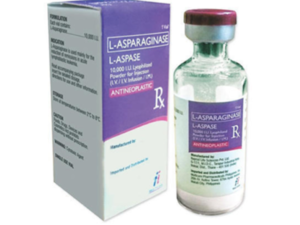Description
Lipase: The Unsung Hero of Digestion and Beyond
Lipase, often playing a supporting role in the grand theatre of human biology, is a crucial enzyme with a wider range of applications than you might think. From efficiently breaking down fats in our diet to contributing to industrial processes and potentially holding keys to future medical advancements, lipase’s versatility makes it a fascinating subject to explore.
Understanding Lipase: The Fat-Busting Enzyme
At its core, lipase is an enzyme that catalyzes the hydrolysis of fats (lipids). In simpler terms, it breaks down triglycerides – the main component of dietary fat – into smaller, absorbable molecules like fatty acids and glycerol. This process is essential for efficient digestion and absorption of fats, which provide our bodies with energy, support cell growth, and protect organs.
Where Does Lipase Come From?
Lipase is produced by various organs in the body, each playing a specific role:
- Pancreas: The primary source of lipase in humans, pancreatic lipase is secreted into the small intestine to digest dietary fats after they are emulsified by bile.
- Stomach: Gastric lipase, secreted by stomach cells, initiates fat digestion, particularly important in newborns who rely heavily on fat for energy.
- Mouth: Lingual lipase, secreted by glands in the tongue, also contributes to the initial breakdown of fats.
- Adipose Tissue: Although its primary function is fat storage, adipose tissue also produces lipase, known as hormone-sensitive lipase, to release stored fats for energy.
The Importance of Lipase in Digestion
Without sufficient lipase, our bodies struggle to absorb fats. This can lead to several issues, including:
- Malabsorption: Difficulty absorbing fat-soluble vitamins (A, D, E, and K) and other essential nutrients.
- Steatorrhea: Oily, foul-smelling stools due to undigested fat.
- Abdominal Pain and Discomfort: As undigested fats pass through the digestive system.
- Weight Loss: Due to the inability to properly absorb and utilize dietary fats.
Conditions like pancreatitis, cystic fibrosis, and celiac disease can impair lipase production and lead to these complications.
Lipase Beyond the Body: Industrial Applications and Medical Advancements
The versatility of lipase extends far beyond its role in digestion. Its ability to break down fats makes it valuable in various industries:
- Food Industry: Used in cheese production to develop flavor, enhance texture, and accelerate ripening. Also employed in modifying oils and fats for baking and other food processing applications.
- Detergent Industry: Lipases are added to laundry detergents to remove oily stains more effectively, even at lower temperatures.
- Pharmaceutical Industry: Used in the production of pharmaceuticals and in the development of drug delivery systems.
- Biofuel Production: Lipase can be used to convert vegetable oils and animal fats into biodiesel, a renewable and sustainable fuel source.
Furthermore, ongoing research is exploring the potential of lipase in:
- Cancer Therapy: Some studies suggest that certain lipases may play a role in cancer cell metabolism and could be targeted for therapeutic interventions.
- Lipid Metabolism Disorders: Understanding lipase activity and regulation may lead to improved treatments for conditions like hyperlipidemia (high cholesterol) and obesity.
Maintaining Optimal Lipase Function
For individuals concerned about their lipase levels or those diagnosed with lipase-related deficiencies, several strategies can help support optimal function:
- Pancreatic Enzyme Replacement Therapy (PERT): For those with pancreatic insufficiency, PERT can help to digest fats and improve nutrient absorption.
- Dietary Modifications: Reducing fat intake can alleviate symptoms of lipase deficiency. Consulting a registered dietitian is recommended for personalized guidance.
- Addressing Underlying Medical Conditions: Treating underlying conditions like pancreatitis or celiac disease can improve lipase function.
Conclusion: A Powerful and Versatile Enzyme
Lipase, though often overlooked, is a vital enzyme with essential roles in digestion, industrial applications, and potential medical advancements. Its ability to break down fats is critical for nutrient absorption, and its versatility makes it a valuable tool in various industries. By understanding the importance of lipase and supporting its optimal function, we can promote better digestive health and explore its potential for future innovations.












Reviews
There are no reviews yet.